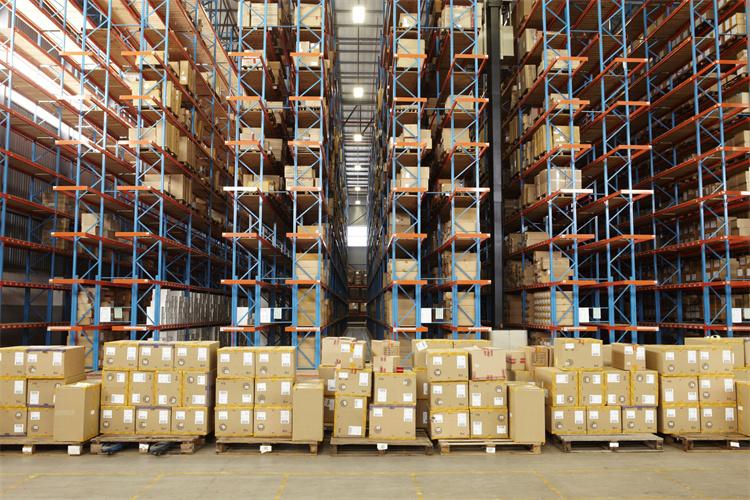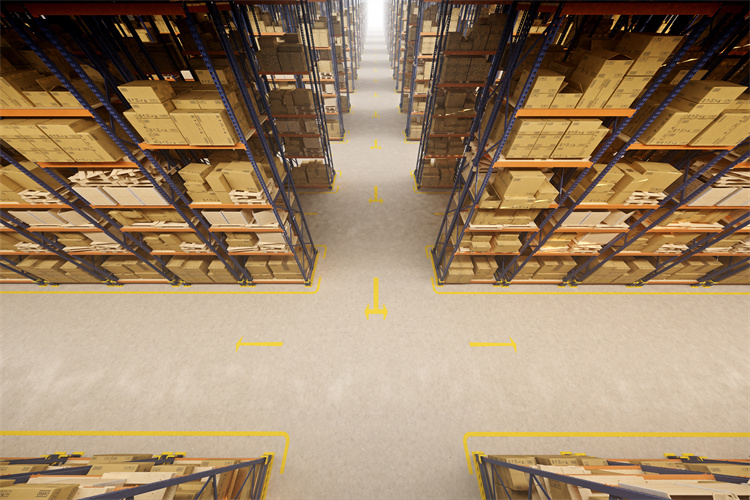Emerging Trends in Logistics Automation and AI for 2024

Logistics Automation and AI are transforming the logistics industry at an unprecedented pace. These technologies streamline operations, enhance efficiency, and reduce costs. The global market for logistics robots is projected to grow at a compound annual growth rate of 24% from 2021 to 2026. Meanwhile, the AI in logistics market is expected to witness a remarkable growth rate of 46.72% between 2024 and 2033. Staying updated with these emerging trends in 2024 is crucial for businesses to remain competitive and leverage the full potential of these advancements.
Key Innovations in Logistics Automation

Robotics and Automation
Autonomous Vehicles
Autonomous vehicles represent a significant leap forward in logistics automation. These vehicles, including self-driving trucks and delivery drones, promise to revolutionize the transportation of goods. By reducing the need for human drivers, companies can achieve substantial cost savings. According to a report by PwC, the adoption of autonomous vehicles in logistics could lead to cost reductions of up to 25% by 2030. This efficiency stems from lower labor expenses, increased fuel efficiency, and optimized routing. In 2024, the logistics industry anticipates progress in deploying these vehicles beyond company premises, enhancing their role in everyday operations.
Warehouse Robotics
Warehouse robotics have become integral to modern logistics centers. Advanced robots now handle tasks such as picking, packing, sorting, and transportation. These robots not only increase efficiency but also address labor shortages and enhance workplace safety. For instance, ArcBest's launch of the autonomous forklift Vaux Smart Autonomy in February 2024 exemplifies the growing trend of integrating robotics into warehouse operations. These innovations streamline processes and reduce human error, making logistics operations more reliable and cost-effective.
Internet of Things (IoT)
Real-time Tracking
The Internet of Things (IoT) plays a crucial role in logistics automation by enabling real-time tracking of goods. IoT devices, such as sensors and GPS trackers, provide continuous updates on the location and condition of shipments. This technology enhances supply chain visibility, allowing companies to monitor their assets and respond swiftly to any disruptions. Real-time tracking not only improves customer satisfaction by providing accurate delivery estimates but also optimizes inventory management by ensuring timely replenishments.
Predictive Maintenance
Predictive maintenance, powered by IoT, is transforming how logistics companies manage their equipment. By analyzing data from IoT sensors, companies can predict when machinery or vehicles require maintenance, preventing unexpected breakdowns. This proactive approach reduces downtime and extends the lifespan of equipment, leading to significant cost savings. Predictive maintenance ensures that logistics operations run smoothly, minimizing disruptions and maintaining high levels of efficiency.
AI Applications in Logistics

Machine Learning Algorithms
Demand Forecasting
Machine learning algorithms have revolutionized demand forecasting in logistics. They analyze vast amounts of data to predict future demand accurately. This capability allows companies to optimize inventory management and reduce costs. According to a study on Applications of Artificial Intelligence for Demand Forecasting, AI-driven algorithms can decrease forecasting errors by up to 50%. This improvement leads to a 20% reduction in inventory costs. By anticipating market changes and customer demands, logistics companies can enhance service levels and maintain competitiveness.
Route Optimization
Route optimization represents another significant application of machine learning in logistics. AI algorithms evaluate factors like traffic patterns, weather conditions, and delivery schedules to determine the most efficient routes. This process minimizes transportation costs and reduces delivery times. The study titled Future Trends in Automation: Transforming Logistics Operations highlights that AI and ML technologies enable logistics companies to respond more effectively to dynamic market conditions. As a result, businesses can improve their operational efficiency and customer satisfaction.
Natural Language Processing
Customer Service Automation
Natural Language Processing (NLP) plays a crucial role in automating customer service within the logistics industry. NLP-powered chatbots and virtual assistants handle customer inquiries, providing quick and accurate responses. This automation reduces the workload on human agents and enhances the overall customer experience. By leveraging NLP, logistics companies can offer 24/7 support, ensuring timely assistance for customers.
Data Analysis and Insights
NLP also facilitates advanced data analysis and insights generation. It processes unstructured data from various sources, such as emails, social media, and customer feedback, to extract valuable information. This analysis helps logistics companies identify trends, understand customer preferences, and make informed decisions. The study on Logistics Trends 2023-2024 emphasizes AI's role in understanding mistakes and learning how to avoid them in the future. By utilizing NLP, businesses can continuously improve their operations and adapt to changing market demands.
JUSDA's Role in Logistics Automation
JusLink Intelligent Supply Chain
JUSDA stands at the forefront of logistics automation with its JusLink Intelligent Supply Chain. This platform integrates cutting-edge technologies to enhance operational efficiency and visibility across the supply chain.
Integration of IoT and Cloud Computing
JUSDA leverages the power of the Internet of Things (IoT) and cloud computing to revolutionize logistics operations. IoT devices, such as sensors and GPS trackers, provide real-time data on shipments, enabling precise tracking and monitoring. This integration ensures that logistics managers have access to up-to-date information, allowing them to make informed decisions quickly. Cloud computing facilitates seamless data sharing and collaboration among stakeholders, enhancing the overall efficiency of logistics processes.
Enhancing Supply Chain Visibility
Supply chain visibility is crucial for maintaining smooth operations and meeting customer expectations. JUSDA's JusLink platform enhances visibility by providing a comprehensive view of the entire supply chain. This transparency allows companies to identify potential bottlenecks and address them proactively. By improving supply chain visibility, JUSDA helps businesses optimize their logistics operations, reduce costs, and improve customer satisfaction.
Industry-Specific Solutions
JUSDA offers tailored solutions to meet the unique needs of various industries. These industry-specific solutions ensure that businesses can leverage logistics automation effectively.
Electronic Manufacturing
In the electronic manufacturing sector, JUSDA provides specialized logistics solutions that streamline operations and enhance efficiency. The integration of robotics and AI, enables precise inventory management and reduces lead times. By optimizing logistics processes, JUSDA helps electronic manufacturers meet the demands of a rapidly evolving market.
Automotive and New Energy
JUSDA also caters to the automotive and new energy industries, offering solutions that address their specific logistics challenges. The company utilizes automation and AI to optimize supply chain operations, ensuring timely delivery of components and finished products. This approach not only reduces costs but also enhances the overall reliability of the supply chain.
JUSDA's commitment to innovation and efficiency positions it as a leader in logistics automation. By integrating advanced technologies and offering industry-specific solutions, JUSDA empowers businesses to stay competitive in a rapidly changing market.
Challenges and Opportunities
Integration with Existing Systems
Logistics automation offers numerous benefits, but integrating these advanced technologies with existing systems presents challenges. Companies often face compatibility issues when trying to merge new automation tools with their current infrastructure. Legacy systems may not support the latest technologies, leading to potential disruptions in operations. Businesses must carefully evaluate their existing systems and identify areas that require upgrades or modifications to ensure seamless integration.
Compatibility Issues
Compatibility issues arise when new automation technologies do not align with existing systems. For instance, older software may not communicate effectively with modern IoT devices or AI-driven platforms. This misalignment can result in data silos, where information is not shared across the organization, hindering decision-making processes. Companies need to invest in compatible technologies and ensure that their systems can work together harmoniously to maximize the benefits of logistics automation.
Cost Implications
The integration of logistics automation technologies involves significant financial investments. Companies must allocate resources for purchasing new equipment, upgrading existing systems, and training employees to use these technologies effectively. While the initial costs may be high, the long-term benefits, such as increased efficiency and reduced operational costs, often outweigh the expenses. Businesses should conduct a cost-benefit analysis to determine the potential return on investment and make informed decisions about adopting automation technologies.
Regulatory and Ethical Considerations
As logistics automation becomes more prevalent, companies must navigate various regulatory and ethical considerations. These factors play a crucial role in ensuring that businesses operate within legal boundaries and maintain ethical standards.
Data Privacy Concerns
Data privacy concerns are paramount in the logistics industry, especially with the increasing use of IoT devices and AI technologies. These tools collect vast amounts of data, including sensitive customer information, which must be protected from unauthorized access. Companies must implement robust data security measures to safeguard this information and comply with data protection regulations. Failure to do so can result in legal penalties and damage to the company's reputation.
Compliance with Regulations
Compliance with regulations is essential for companies adopting logistics automation technologies. Governments worldwide have established laws and guidelines to ensure the safe and ethical use of these technologies. Businesses must stay informed about relevant regulations and ensure that their operations align with legal requirements. This includes obtaining necessary permits, adhering to safety standards, and conducting regular audits to verify compliance. By prioritizing regulatory compliance, companies can avoid legal issues and build trust with their customers and stakeholders.

JUSDA Solutions
To provide you with professional solutions and quotations.
The blog explored the transformative trends in logistics automation and AI for 2024. Key innovations like autonomous vehicles, warehouse robotics, and IoT integration are reshaping the industry. These technologies enhance efficiency, reduce costs, and improve sustainability. AI applications, such as demand forecasting and route optimization, further streamline operations. JUSDA's role in leveraging these advancements highlights the potential for industry-specific solutions. As logistics evolves, companies must adapt to new regulations and embrace innovative strategies. The future promises a more connected, transparent, and sustainable logistics landscape, driven by cutting-edge technologies.
See Also
Unlocking AI's Power: Logistics Revolution Explored
Revealing Tomorrow's Supply Chain: AI Fusion Perspectives
AI in Logistics: Transforming Future Supply Chains
Paving the Way: Digital Tech's Impact on Future Logistics
Delving into Eco-Friendly Robotics: Supply Chain Tech Trends
